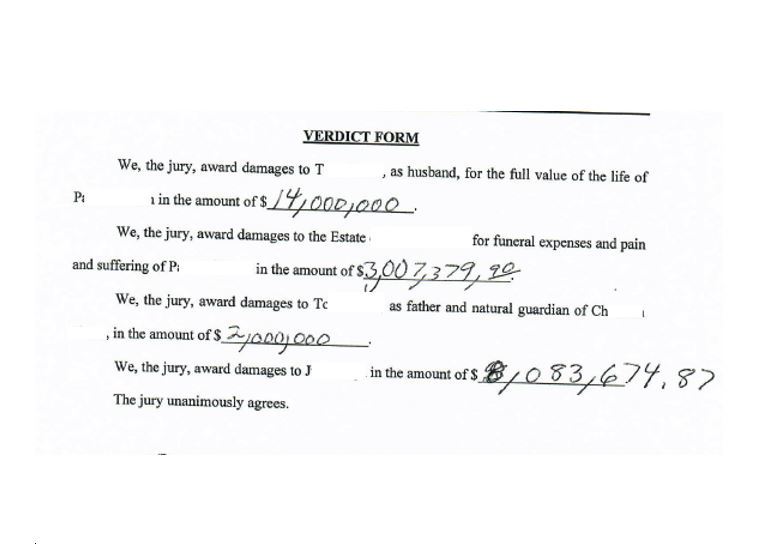In general, wrongful death settlements are paid in either (a) a lump sum payment to the Claimants or (b) periodic payments are made over a period of time-based on a structured settlement. Whether or not the settlement will be a lump sum or structured deals with many factors.
First, it depends on who is entitled to recover for the wrongful death.
The authority to file a wrongful death lawsuit is controlled by three statutes. O.C.G.A. § 51-4-2; O.C.G.A. § 51-4-4; and O.C.G.A. § 51-4-5. These statutes establish an order of priority for who can assert a wrongful death claim, absent some unusual circumstances.
These statutes state as follows create the following order of priority: (a) surviving spouse; (b) surviving children; (c) surviving parent; and, (d) the administrator of the estate. The statutes read as follows:
- “The surviving spouse or, if there is no surviving spouse, a child or children, either minor or sui juris, may recover for the homicide of the spouse or parent the full value of the life of the decedent, as shown by the evidence.”
- “If [a] deceased child does not leave a spouse or child, the right of recovery shall be in the parent or parents….”
- “When there is no person entitled to bring an action for the wrongful death of a decedent under [the two statutes noted above], the administrator or executor of the decedent may bring an action….”
When the person entitled to the proceeds is a minor child, then a structured settlement will generally be required. A structured settlement is essentially an insurance policy, whereby the claimant authorizes a larger insurance company (such as MetLife) to receive the proceeds of the settlement.
In turn, the large insurer (like MetLife) issues an insurance policy to the Claimant guaranteeing a larger amount of money to be paid to the Claimant at a later date.
This is used in minor settlements because a minor child is not permitted to receive funds over $15,000 in settlement of a tort suit. A structured settlement permits the minor child’s proceeds to be invested in a safe source for many years, with a guaranteed payout at the age of majority. There is an option for a lump sum payment to a “court-appointed conservator.” Generally speaking, however, it is expensive to use a conservatory.
This is because the conservator must post a “bond” in the amount of the settlement. If the settlement is significant, this bond is very expensive. Plus, the conservator gets to charge a significant yearly % to manage the proceeds.
Second, it depends on the amount of money at stake. A wrongful death settlement can be extremely high. It is not uncommon for a wrongful death settlement to be in the multiple millions.
However, that takes (a) liability on the part of the Defendant and (b) an asset from which to recover. In many cases, one or both of those is lacking.
For example, in Georgia, the minimum required insurance for automobiles is only $25,000.00.
Even in the most egregious of circumstances, more likely than not, this is the total amount that would be paid in the event of a wrongful death caused by an insured with $25,000 in coverage.
A business in Georgia does not have to have commercial liability insurance.
Therefore, accidents caused by businesses with no insurance and no assets may result in no significant recovery.
In cases where there is a significant amount of money, a structured settlement may make sense. This would enable the proceeds to be paid over a number of years, with a guaranteed rate of return. If the money is significant enough, this rate of return can be large.
Third, it depends on what the family wants.
The settlement can be paid in a lump sum payment.
This is the most common method that we use in our cases. The family usually feels that they can manage their money better than other folks, and we tend to agree with them.
At our firm, we have recovered millions for wrongful death victims in settlements. We have also received a verdict in excess of $27,000,000 for the wrongful death of a spouse and mother.
At our firm, we are experienced fatal accident attorneys based in Atlanta.
Contact us today for a free consultation.

